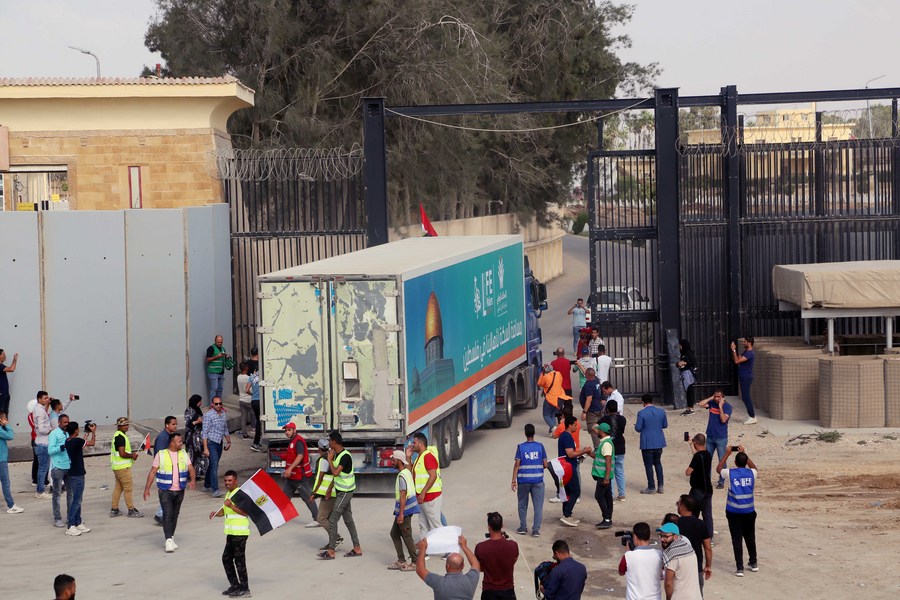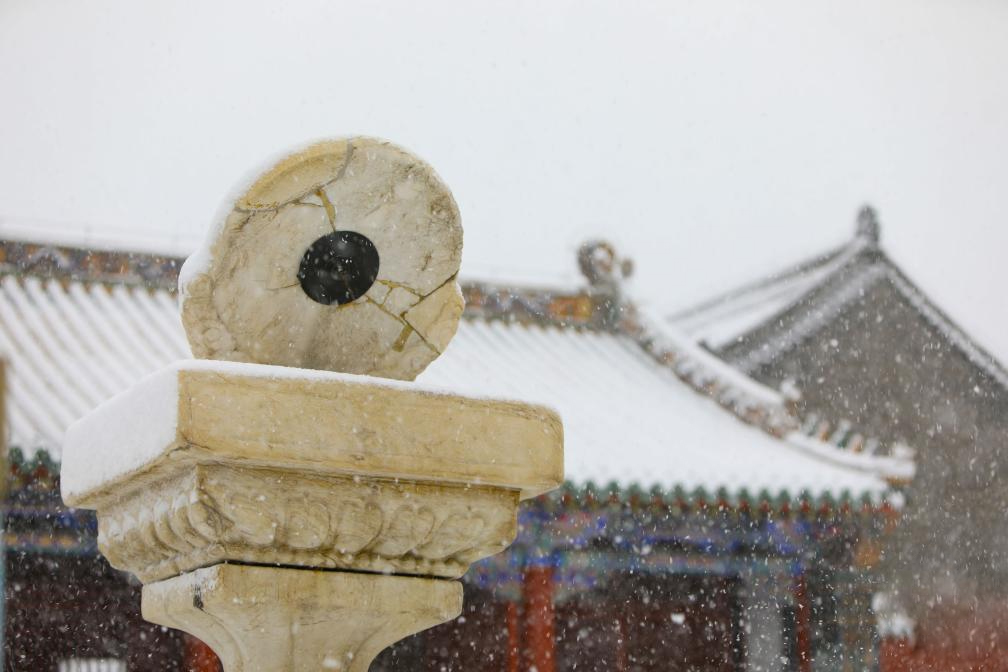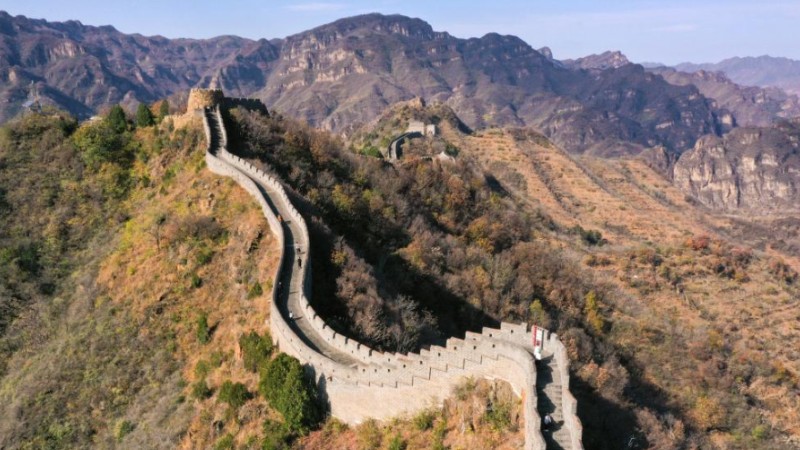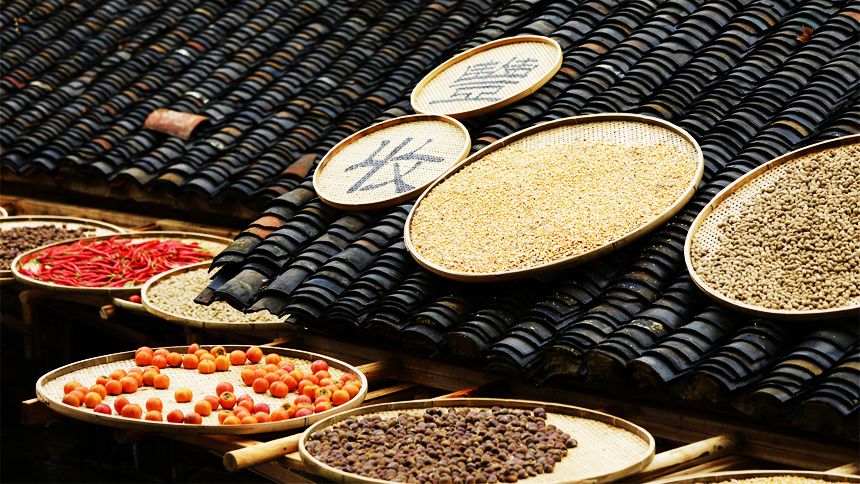Commentary: China makes every effort for peace in Mideast

A truck loaded with humanitarian aid enters Gaza from the Egyptian side of the Rafah border crossing on Oct. 22, 2023. (Xinhua/ Ahmed Gomaa)
China adheres to four principles to promote peace in the Mideast: humanitarianism, political settlement, multilateralism, and addressing both the symptoms and root causes.
BEIJING, Nov. 8 (Xinhua) -- The new round of Palestine-Israel conflict has claimed over 11,000 lives in Gaza and drawn increasingly strong calls worldwide for an immediate ceasefire and an early end to the bloodshed.
Since the outbreak of the ongoing conflict, China has maintained close communication with relevant parties, actively participated in UN Security Council consultations, and made every effort to promote peace talks and cool down the situation.
To successfully resolve the Palestinian-Israeli issue, the following four principles, which China has always advocated, are worth keeping.
First, China has always adhered to humanitarianism.
Protecting civilians in armed conflicts is a red line stipulated in international humanitarian law. China upholds that all countries have the right to self-defense, but should abide by international law, especially international humanitarian law, and ensure the safety of civilians.
To ease the humanitarian crisis in Gaza, China has provided emergency humanitarian cash assistance to the Palestinian National Authority and the UN Relief and Works Agency for Palestine Refugees in the Near East (UNRWA), as well as food, medicine and other emergency humanitarian material assistance to Gaza, where the situation is worsening with the number of civilian casualties surging everyday. Such tragedies cannot be allowed to continue.
Second, China holds firm that political settlement is the only way out.
In the Middle East, where conflicts in religion, ethnicity, history and many other aspects are deeply intertwined, order cannot be established by launching wars. The law of the jungle will only make the Middle East more unstable.
As the rotating president of the UN Security Council this month, China strives to strengthen coordination with all parties, especially Arab countries, uphold justice, build consensus, and make unremitting efforts to de-escalate conflicts and restore peace.
Third, multilateralism is the basic principle for China to cool down the situation.
In recent days, Zhai Jun, special envoy of the Chinese government on the Middle East issue, has visited Egypt, Qatar, the United Arab Emirates, Saudi Arabia, Jordan and other countries, attended the Cairo Summit for Peace, and met with the secretary-general of the Arab League and the commissioner-general of UNRWA, calling for an urgent ceasefire to defuse the conflict and create conditions for restarting the peace process.
On Oct. 27, China, a co-sponsor of the Arab draft UN resolution, firmly voted in favor of calling for a humanitarian truce between Palestine and Israel at the emergency special session of the United Nations General Assembly. China's position, which is based on facts, law, conscience, justice, and strong voices from all over the world, has been widely echoed across the international community.
Fourth, addressing both the symptoms and root causes is China's consistent position in promoting peace in the Middle East.
Beijing firmly believes that the fundamental way out of the Palestinian question, which is at the heart of the Middle East issue, lies in the implementation of the two-state solution, which guarantees an independent Palestinian state on the 1967 borders with East Jerusalem as its capital.
China has played a positive role in boosting the Middle East peace process, and has put forward a series of initiatives and proposals, including the five-point proposal for achieving security and stability in the Middle East, the four-point proposal for a political solution to the Syrian issue, as well as the three-point approach for implementing the two-state solution between Palestine and Israel.
And in March this year, Saudi Arabia and Iran resumed diplomatic relations under the mediation of China.
Late Israeli President Shimon Peres, who worked tirelessly to promote a two-state solution, once said: "The real triumph is in the harvest of peace, not in the seeds of another war. When we replace war maps with peace maps, we will discover the differences were minimal."
The road to peace in the Middle East is rocky. But with joint efforts of the international community, peace, stability and development will eventually be possible between Palestine and Israel, as well as in the region. And China will as always support everything conducive to the cause of peace.
Photos
Related Stories
- China calls for immediate cessation of hostilities between Israelis, Palestinians
- Israeli defense minister says troops reach "heart of Gaza City"
- ICRC says humanitarian convoy attacked in Gaza
- Israeli military says it takes control of Hamas stronghold in northern Gaza
- One month into conflict, Israeli troops reach "heart of Gaza City"
Copyright © 2023 People's Daily Online. All Rights Reserved.









